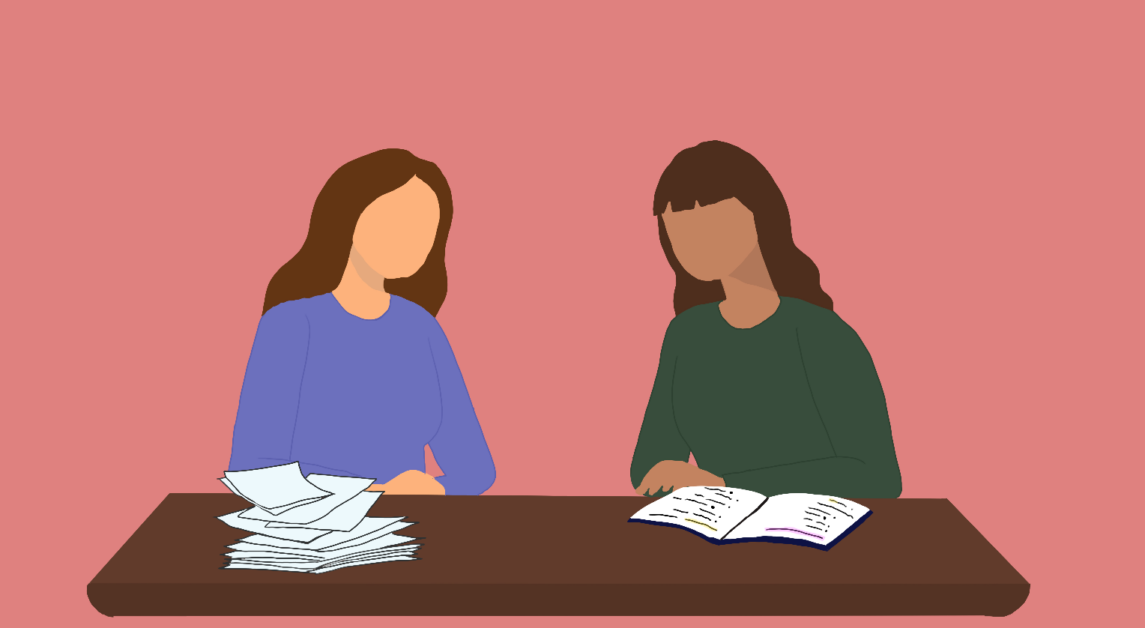I have always thought of myself as a decent student. While I was certainly never the girl with color-coded notes, assignment spreadsheets, or pre-planned study schedules, I knew how to work hard. I was intimately familiar with my own capabilities, and I knew that I could walk away with a grade that I was happy with if I applied enough effort when necessary
And for all intents and purposes, this system worked well … for high-school me.
University introduced me to a world of existence that I had never known before. With classes at different times of the day, full control over my schedule, and access to countless student organizations, I found myself discovering new parts of myself. I relished in the process of learning at sporadic times of the day. I was exploring hobbies like dancing and fashion. I felt completely and utterly free to live life on my own terms—a luxury that allowed me to learn more about myself with each passing day.
While this was a period of amazing self-discovery, it was not without its trials. Namely, I found myself struggling to maintain the same system that had gotten me through all of high school: apply the right amount of effort to obtain ideal results.
Now, every test seemed to require an avalanche of studying that I couldn’t seem to get through. My class readings became unintelligible—bewitched with some spell that prevented me from getting through the first paragraph. The five hours in which I used to churn out a paper were suddenly spent staring aimlessly at a blank page.
No matter what I tried, I couldn’t shake the feeling of wrongness. I felt like the world was moving at a pace I couldn’t adjust to, requiring me to spend my days doing tasks that actively countered everything that my mind and body were telling me to do. And while I managed to get by in school, it was exactly that—just getting by.
It wasn’t until my junior year that I was fortunate enough to have my personal experiences validated by a medical diagnosis: ADHD. In one day, the scope of all of my trials was suddenly explained by four short letters. All of the traits that I had previously attributed to laziness, ennui, and sloth-like behavior felt immensely justified. And I suddenly had the key to developing a new framework that would perhaps make my life the littlest bit easier.
It has now been over a year since I began deconstructing my own self-perception and recalibrating my life to accommodate what I know about how I work. In the process, I have learned so much about myself.
I have grown to accept that inspiration and creativity will always come to me in short bursts, not long, steady stretches. I’ve learned that my brain does best with a combination of moderate scheduled routine and spontaneity. I understand, now, that flexibility is the key to my success. If I am incapable of doing a particular assignment on the day I planned, I can respect my own capacity and move things around so that I am doing other activities that are better suited for my brain.
Most importantly, I have learned that shame is the antithesis of my personal power, and shame is everywhere in the world we live in. If a student doesn’t perform to their expectations on an exam, they tend to feel ashamed. If a student struggles to get through the study material they planned, they feel ashamed. If they don’t get the internship they wanted, they feel ashamed. If they can’t understand the reading enough to complete it, they feel ashamed. The list goes on.
Many of our educational experiences are colored by this very shame. Whether it originates from the need to keep up with the demands of high-achieving, “talented-and-gifted” studenthood, or from a long history of perceived academic failures, it is hard to find a source of motivation that isn’t powered by pain or anxiety about potential failure.
My experience with ADHD has forced me to reevaluate how shame has been a prime factor in my willpower to do well. In accepting that many of the studying strategies recommended for students were not built with my brand of neurodivergence in mind, I have had to create a new system for myself—a feat that would have been impossible to pull off if I felt shame at every impossible standard that has been imposed on me. Dismantling my shame has given me the space to get creative with how I motivate myself, tap into my unique potential, and stay true to myself.
To anyone reading this who finds it resonant, please be kind to yourself. It is not easy living in a system that remains ignorant of your process. If my experiences are any indication, there is a way to work with yourself and not against yourself, and once you find it, it makes all the difference.
While my trials have not simply disappeared, this journey has led me to a deeper understanding of myself and my talents—something that high-school Punnya would have yearned for.













